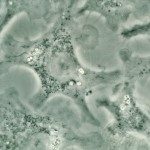Lien vers Pubmed [PMID] – 19132187
Thromb. Haemost. 2009 Jan;101(1):36-47
The concept of ‘Compensatory anti-inflammatory response syndrome’ (CARS) was proposed in 1997 by Roger Bone (1941-1997) to qualify the consequences of the counter-regulatory mechanisms initiated to limit the overzealous inflammatory process in patients with infectious (sepsis) or non-infectious systemic inflammatory response syndrome (SIRS). One major consequence of CARS is the modification of the immune status that could favour the enhanced susceptibility of intensive care patients to nosocomial infections. Indeed, most animal ‘two-hit’ models illustrate an enhanced sensitivity to infection after a first insult. However, this observation is highly dependent on the experimental procedure. Numerous functions of circulating leukocytes are altered in sepsis and SIRS patients, as well as in animal models of sepsis or SIRS. However, this is rather a reprogramming of circulating leukocytes, since there is not a global defect of the immune cells functions. Furthermore, within tissues, leukocytes are rather primed or activated than immunosuppressed. Thus, CARS may be considered as an adapted compartmentalized response with the aim to silence some acute proinflammatory genes, and to maintain the possible expression of certain genes involved in the anti-infectious process.

